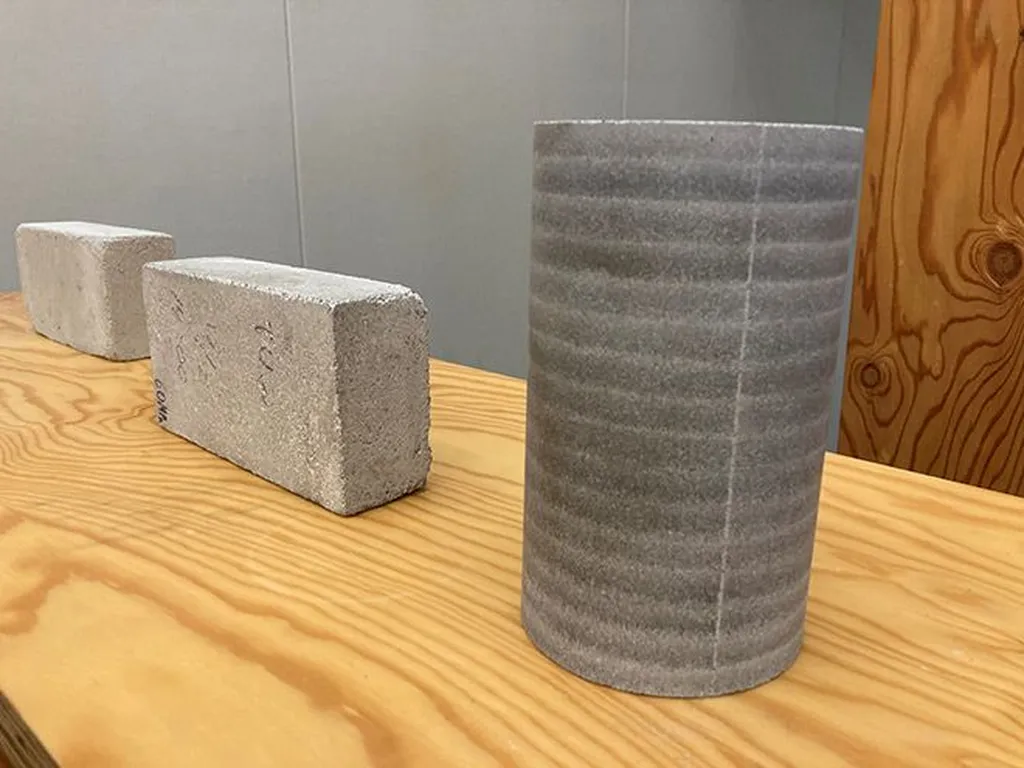In the quest for sustainable construction materials, a team of researchers led by Zongxuan Shao from the Department of Civil Engineering at the University of Tokyo has made a significant stride. Their study, published in *Case Studies in Construction Materials* (which translates to “典型建筑材料研究”), explores the enhancement of compacted hardened cement paste (HCP) powder through carbonation, offering promising avenues for recycling concrete waste and reducing carbon emissions in the construction industry.
The rapid industrialization has led to a surge in concrete waste generation, with current recycling practices focusing mainly on producing recycled concrete aggregate (RCA). However, the residual recycled concrete powder (RCP), rich in hardened cement paste, often ends up as a filler material. Shao and his team aimed to change this narrative by investigating the effects of carbonation on compacted RCP powder materials.
Their research revealed that compacts formed under 30 MPa pressure exhibited a remarkable increase in compressive strength from 8.3 to 66.1 MPa after carbonation. This enhancement is attributed to the refinement of pore structure and the formation of various calcium carbonate polymorphs, including calcite, vaterite, and aragonite. “The decomposition temperature range of CaCO3 widened notably after carbonation,” Shao explained, highlighting the transformation of these metastable polymorphs into calcite during the carbonation process.
The study also shed light on the CO2 diffusion pattern within the samples, which formed an hourglass shape due to axial compaction. Interestingly, the edge region exhibited a lower carbonation rate and degree despite direct contact with CO2, indicating the complex interplay between compaction and carbonation.
From a commercial perspective, the research holds significant potential for the energy sector. The enhanced HCP powder can contribute to low-carbon construction applications, with the samples achieving around 20% CO2 sequestration after just three days of carbonation. This not only reduces the environmental impact of construction materials but also opens up new possibilities for carbon capture and storage technologies.
The findings of this study could shape future developments in the field by promoting the use of recycled materials and encouraging innovative recycling practices. As the construction industry continues to grapple with the challenges of sustainability, research like this offers a glimmer of hope and a path forward.

